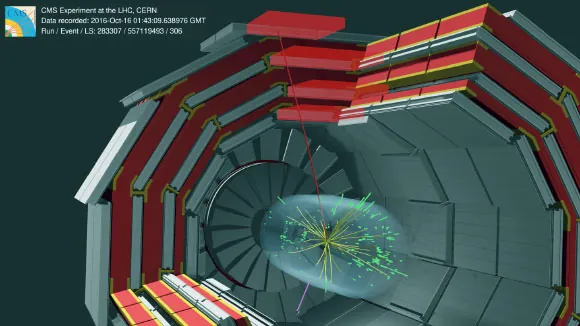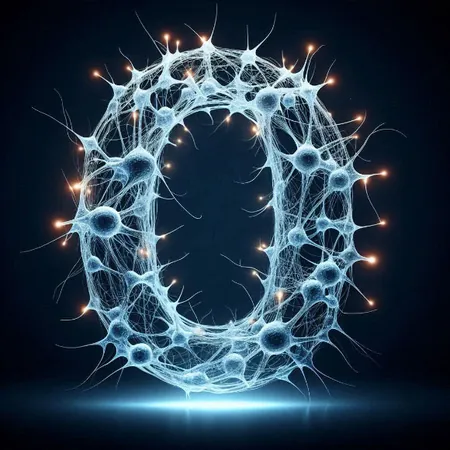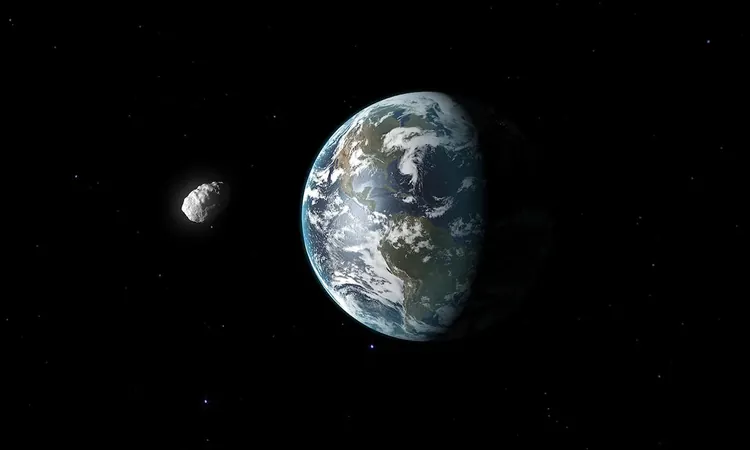
Groundbreaking Measurement of W Boson Mass by CERN Physicists
2024-09-18
CERN's Latest Endeavors
CERN's latest endeavors in particle physics have led to a groundbreaking measurement of the W boson mass, a critical element of the Standard Model that describes the weak interaction in subatomic particles. This intricately designed investigation utilized the capabilities of the Compact Muon Solenoid (CMS) experiment at CERN’s Large Hadron Collider (LHC) and marks a significant milestone in the pursuit of precision physics.
Interconnection of W and Z Boson Masses
The masses of the W and Z bosons are interconnected within the Standard Model, which serves as the foundation of particle physics. While the Z boson's mass is known with impressive precision—an uncertainty of just 20 parts per million—the W boson has historically presented challenges in attaining such accuracy. Recent findings are pushing the boundaries of our understanding, making it essential to refine the measurement of the W boson's mass, as any discrepancies could hint at new physics beyond the Standard Model.
Theoretical Predictions and Discrepancies
Theoretical predictions suggest that the W boson mass should be constrained to approximately 80353 million electronvolts (MeV) with a margin of uncertainty of 6 MeV. However, a shocking reading from the Collider Detector at Fermilab (CDF) in 2022, which indicated a mass of 80433.5 MeV, triggered debates among physicists and suggested potential implications of undiscovered particles or interactions that could redefine existing theories.
Updated Measurements by ATLAS and CMS
This year, the ATLAS Collaboration at CERN provided an updated W boson mass measurement, reported at 80366.5 MeV with an uncertainty of 15.9 MeV, which aligned closely with previous measurements, except for the CDF's high value. Meanwhile, the CMS experiment unveiled its first measurement of the W boson mass, registering at 80360.2 MeV with an uncertainty of 9.9 MeV. This current measurement maintains a level of precision comparable to CDF’s findings while being in concordance with earlier results, further underscoring the importance of these experiments.
Insights from CERN Scientists
Dr. Patricia McBride, a key scientist at the CMS project, stated, “This analysis is the first attempt to measure the W mass in the harsh collision environment of the second running period of the LHC.” She praised the team's exceptional efforts, emphasizing the success in achieving such high precision under challenging conditions.
Adding to the complexity, Dr. Gautier Hamel de Monchenault remarked on the challenges of measuring the W boson mass which involves intricate theoretical modeling. The process involves tracking the W boson's decay into a muon and an elusive neutrino that evades detection. Thanks to sophisticated advances and high-precision measurements by the CMS detector, this latest result represents a monumental step forward in particle physics.
Conclusion and Future Prospects
In summary, the ongoing research into the W boson mass is not merely an academic endeavor; it could hold the key to understanding the very fabric of our universe. Physicists are eager for future experiments and analyses, which may soon reveal whether current theories can withstand the challenges posed by these tantalizing measurements. Will the discrepancies observed lead to exciting discoveries? The world waits with bated breath as new findings unfold in the realm of high-energy physics at CERN.





 Brasil (PT)
Brasil (PT)
 Canada (EN)
Canada (EN)
 Chile (ES)
Chile (ES)
 España (ES)
España (ES)
 France (FR)
France (FR)
 Hong Kong (EN)
Hong Kong (EN)
 Italia (IT)
Italia (IT)
 日本 (JA)
日本 (JA)
 Magyarország (HU)
Magyarország (HU)
 Norge (NO)
Norge (NO)
 Polska (PL)
Polska (PL)
 Schweiz (DE)
Schweiz (DE)
 Singapore (EN)
Singapore (EN)
 Sverige (SV)
Sverige (SV)
 Suomi (FI)
Suomi (FI)
 Türkiye (TR)
Türkiye (TR)